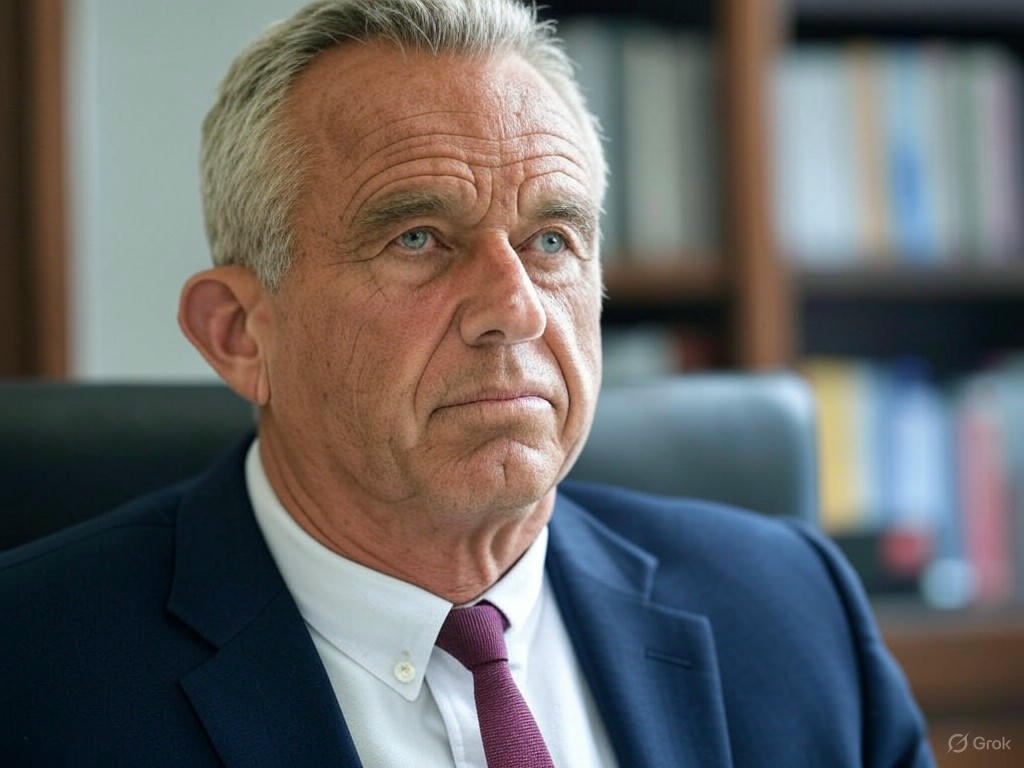RFK Jr. Sparks Debate Over Vaccine Ingredients and Child Immunizations
In a move that has reignited long-standing debates over vaccine safety, Robert F. Kennedy Jr. is steering a newly formed advisory panel to scrutinize the components of childhood immunizations, with a particular focus on aluminum, a common adjuvant used to enhance vaccine effectiveness. This initiative, slated to include discussions on measles vaccinations for children, has drawn both attention and criticism from public health experts and concerned parents alike. As the panel prepares to convene in the coming days, the implications of their findings could reshape public trust in immunization programs across the United States.
Kennedy, a known skeptic of certain vaccine practices, has repeatedly raised concerns about the use of aluminum in shots, despite extensive scientific research debunking any link between the ingredient and neurological disorders like autism. His push for a review comes at a time when vaccine hesitancy is already a growing challenge, with some communities reporting declining vaccination rates for preventable diseases. The advisory panel’s agenda includes a detailed examination of measles vaccines, a cornerstone of childhood health programs, as well as a potential vote on whether to recommend changes to the use of aluminum in vaccine formulations. Critics argue that revisiting settled science risks undermining decades of progress in eradicating deadly illnesses, while supporters of Kennedy’s efforts believe it’s a necessary step to address lingering public doubts and ensure transparency in healthcare policies.
Public health officials have been quick to respond, emphasizing that aluminum has been used safely in vaccines for over 70 years, with rigorous studies confirming its role in boosting immune responses without causing harm. Organizations like the Centers for Disease Control and Prevention (CDC) and the World Health Organization (WHO) have reiterated that the levels of aluminum in vaccines are far below toxic thresholds, and the ingredient is naturally present in food, water, and even breast milk. However, Kennedy’s panel is likely to argue that cumulative exposure, especially in young children receiving multiple shots, warrants further investigation. This clash of perspectives highlights a broader tension between scientific consensus and public skepticism, a divide that has only widened in the wake of misinformation spread through social media and other platforms.
As the panel’s discussions unfold, the stakes couldn’t be higher. Measles, once nearly eradicated in the U.S., has seen a resurgence in recent years due to vaccine refusal in certain pockets of the population. Any policy shift or public statement questioning the safety of immunizations could exacerbate this trend, potentially leading to outbreaks of preventable diseases. On the other hand, if Kennedy’s initiative leads to greater transparency and public education about vaccine ingredients, it might help bridge the trust gap for some hesitant families. The coming weeks will be critical in determining whether this review fosters constructive dialogue or further polarizes an already contentious issue. For now, all eyes are on RFK Jr. and his panel as they navigate the delicate balance between science, policy, and public perception.


